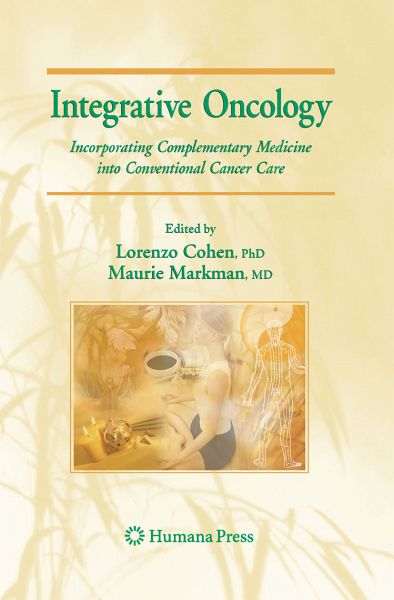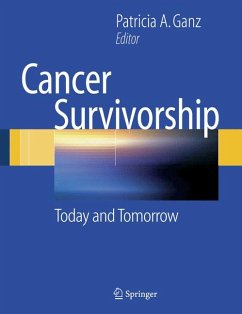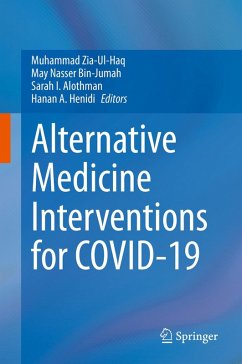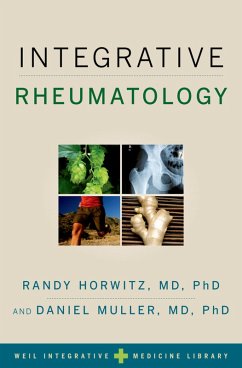
Integrative Oncology (eBook, PDF)
Incorporating Complementary Medicine into Conventional Cancer Care
Redaktion: Markman, Maurie; Cohen, Lorenzo
Versandkostenfrei!
Sofort per Download lieferbar
80,95 €
inkl. MwSt.
Weitere Ausgaben:

PAYBACK Punkte
40 °P sammeln!
Integrative medicine strives to incorporate the best of complementary and conventional modalities. By examining five prestigious comprehensive cancer centers, the authors focus on the innovative ways in which integrative oncology is being incorporated into conventional cancer care in the United States. The authors discuss the field of integrative oncology, the potential harm and legal issues, and how to communicate concepts and treatment with patients. Integrative Oncology: Incorporating Complementary Medicine into Conventional Cancer Care is a platform from which accomplished professionals de...
Integrative medicine strives to incorporate the best of complementary and conventional modalities. By examining five prestigious comprehensive cancer centers, the authors focus on the innovative ways in which integrative oncology is being incorporated into conventional cancer care in the United States. The authors discuss the field of integrative oncology, the potential harm and legal issues, and how to communicate concepts and treatment with patients. Integrative Oncology: Incorporating Complementary Medicine into Conventional Cancer Care is a platform from which accomplished professionals describe the various aspects of their programs and present their insights to those seeking to start or improve an integrative oncology program. Integrative oncology is a nascent field, and efforts today are building a rigorous evidenced-based clinical medicine, research, and educational foundation for the future.
Dieser Download kann aus rechtlichen Gründen nur mit Rechnungsadresse in A, B, BG, CY, CZ, D, DK, EW, E, FIN, F, GR, HR, H, IRL, I, LT, L, LR, M, NL, PL, P, R, S, SLO, SK ausgeliefert werden.













